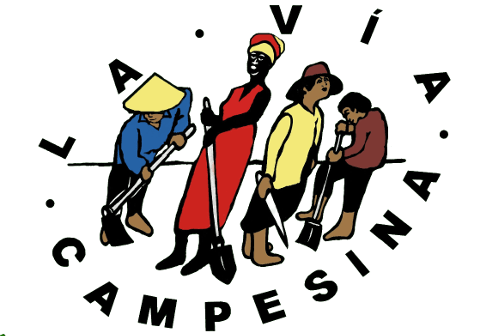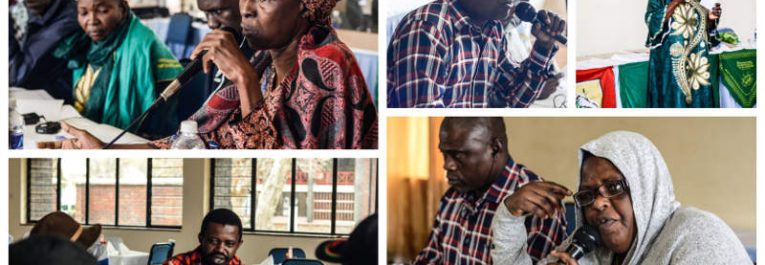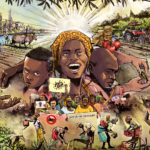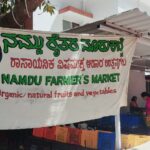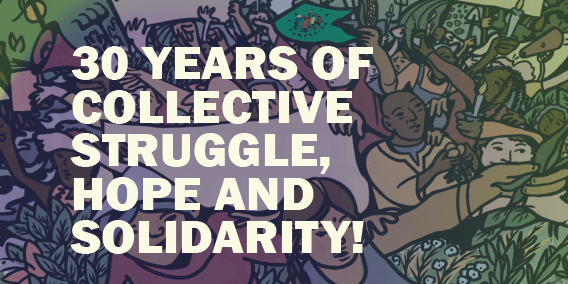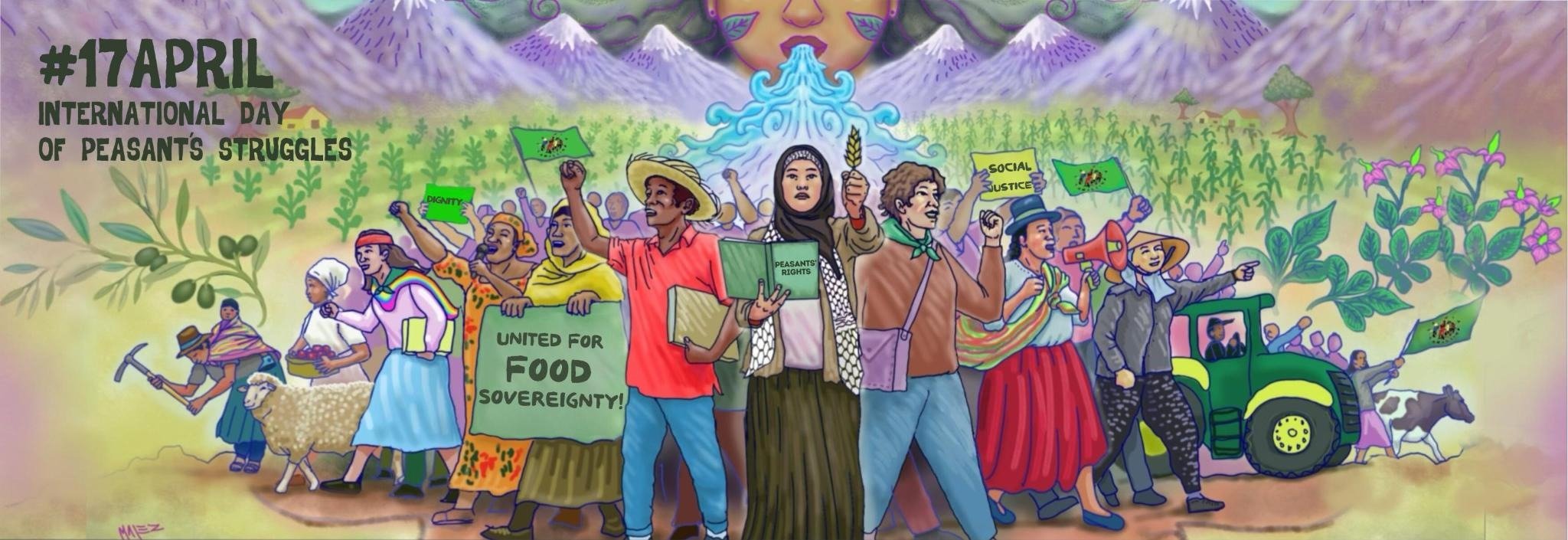The Encounter of Agroecology Schools of La Via Campesina Africa took place from 20-23 August in Harare, with the participation of 16 peasant organisations, from 18 countries across the Africa- continent. The exchange was meant to strengthen the common vision on the training of peasants in Peasant Agroecology as part of the defence of Food Sovereignty and the fight against capital, agroindustry, land-grabbing, social exclusion and climate justice.
Nowadays, schools and training in Agroecology within La Via Campesina Africa have combined knowledge, experience and the struggles of the different organisations with regard to the reality of each country and territory. Furthermore, they have sought to strengthen the fight for the rights of peasants to land, water, seeds and biodiversity.
For Davine Witbooi, one of the leaders of the Landless People’s Movement of South Africa, it is important to build schools and training spaces at a local, regional and international level as has been done in La Via Campesina’s global movement: “our indigenous knowledge helped us understand agroecology as our means for agriculture. That is why political training is vital so that we can have more and better frameworks to organise and mobilise change in the face of government policies which afflict our continent today. We need agrarian reforms, water and seeds for agroecology and to feed our peoples,” she stated.
Among the training methodologies they mentioned the value of horizontal learning through “peasant to peasant” exchanges and they highlighted the need to document and turn them into pedagogical tools so that others can learn from them and use them. “The amazing knowledge of peasants must be recognised and valued; there are useful ancestral practices in our communities. Training trainers is also essential for the autonomy of our training processes”, Elizabeth Mpofu commented, from the Zimbabwe Small Holder Organic Farmers’ Forum (ZIMSOFF).
In Africa, La Via Campesina currently has various schools and training processes in Peasant Agroecology. Countries such as Mozambique, Zimbabwe, Mali and Niger face the challenge of coordinating programmes with a syllabus which reflects their needs as peasants. They also have other itinerant processes, such as courses or modules, in Tanzania, Guinea Bissau, Togo, Ghana, Senegal, The Gambia, Congo Brazzaville, Burkina Faso, Uganda, Kenya and South Africa. “In that sense, for us the technical modules should be linked to the study of theory. Trained technicians, without ideological convictions, will not cater to our needs as a movement aiming to make agroecology accessible to all as another means of struggle against agribusiness and climate change,” David Otieno indicated, from the Kenyan Peasants League (KPL).
For its part, União Nacional de Camponeses (UNAC) of Mozambique mentioned that the need to build a fair society based on the defence of Food Sovereignty led the organisation to rethink its political training practices. “We try to reconstruct and provide new content to training according to the requirements of the current times; that is why training must be understood in an integral and organisational manner, which will guarantee the continuity of our processes,” Inácio Maria added.
The experience in Mali also highlighted the need to translate content into local languages, mostly spoken, of the African continent. Today the CNOP has the approval of the State as a formal space for training; they have 10 training modules created with popular methodologies which include working in classrooms but also in fields. Thus far they have trained around 459 peasants who play the role of “trainer of trainers” in peasant agroecology, with around 15.000 peasants trained in this time. 50% of participants are women and 40% are young people, also aiming to guarantee the presence of the youth in the field. Likewise, the opening of supply and transformation centres was a success.
As a contribution to the Encounter, delegates reiterated their will to commit to the Nyéléni Manifesto of Peasant Agroecology which has a series of guiding principles to practice agroecology in the territories, with the hope to make its adoption accessible on a continental level. “With qualified instructors and frameworks, we are able to put pressure on those responsible for the creation of policies. In 2017 the Land Law was approved, which included the concerns of our field,” noted Ramadan Sylla, from the Coordination Nationale des Organisations Paysannes (CNOP).
Later, peasant Silaho Alphonsine from the National Consultation of Agricultural Producers of Congo Brazzaville stressed that agroecology consists in progressively developing the food systems using guiding principles and peasant practices. “The impact of conventional agriculture has been hard felt. The health of the land and biodiversity suffered along with us, the peasants,” she explained. “Climate change only makes matters worse. Our country is large and diverse. The rural population does not have access to the land. Only 20% of arable land is used for agriculture. That is why our hope is to consolidate our practices, knowledge and exchanges as a continent in order to obtain Food Sovereignty,” she concluded.
Agrarian Reform for Peasant Agroecology
The Encounter of Agroecology Schools of La Via Campesina Africa 2019, which lasted three days, concluded with a field visit to Mashonaland, in the Juru community, where delegates exchanged agroecological practices with ZIMSOFF peasants.
ZIMSOFF was founded in 2002 and today has around 30.000 peasants. It was born from the pressing need to recover the knowledge of their ancestors about agriculture, because for several years they suffered the negative consequences of the intensive use of agrotoxins, which was not only more expensive, but also impacted the health of the land and of those who worked on it. In the 80s, when the agrarian reform took place in Zimbabwe, thousands of peasants received plots of land. This allowed them to return to the ancestral practices which they now call Peasant Agroecology. This has not only allowed them to have a better quality of life but also access to healthy food and a chance to fight the serious effects of climate change which affect the African continent and other corners of the world.
Following this event, ZIMSOFF will also host the La Via Campesina Mid-term Conference which will be preceded by the Youth Assembly, Men’s Encounter and the Women’s Assembly. Around 150 delegates from around the world will convene from the 27 August to 2 September near the capital of Zimbabwe to assess their plans and celebrate their achievements as a peasant movement.
